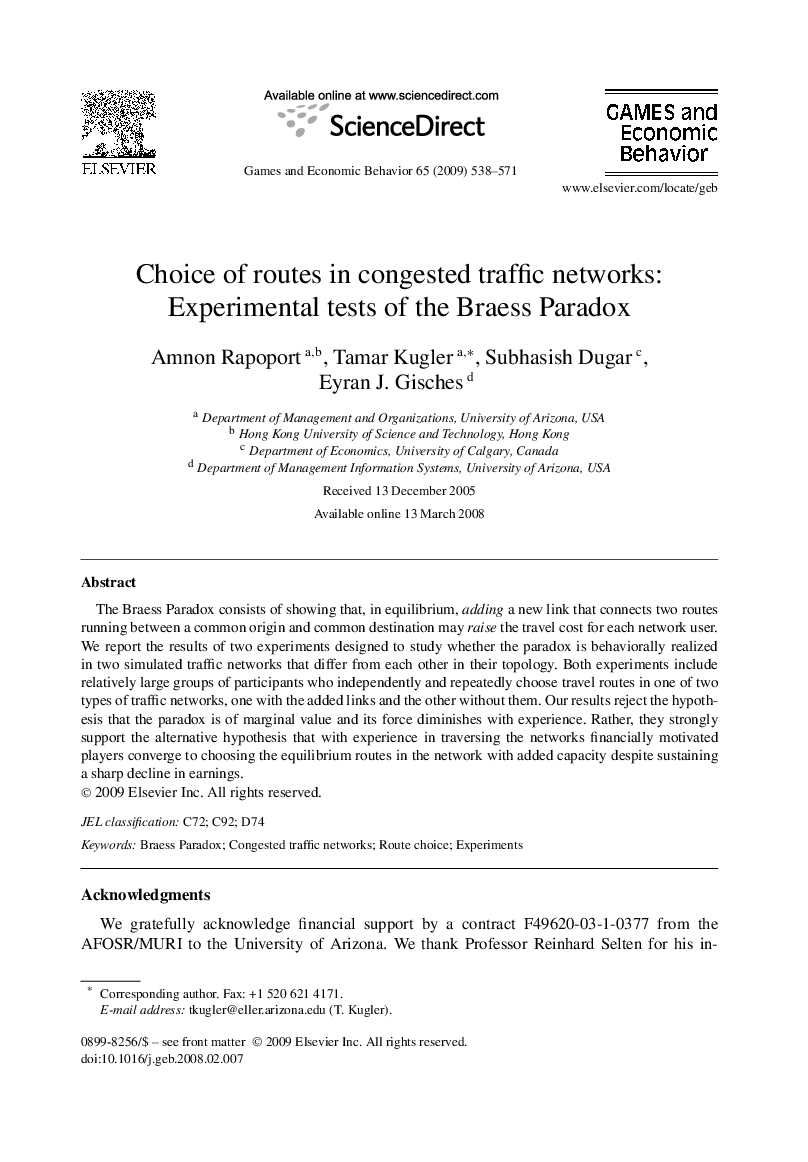| Article ID | Journal | Published Year | Pages | File Type |
|---|---|---|---|---|
| 5072868 | Games and Economic Behavior | 2009 | 34 Pages |
The Braess Paradox consists of showing that, in equilibrium, adding a new link that connects two routes running between a common origin and common destination may raise the travel cost for each network user. We report the results of two experiments designed to study whether the paradox is behaviorally realized in two simulated traffic networks that differ from each other in their topology. Both experiments include relatively large groups of participants who independently and repeatedly choose travel routes in one of two types of traffic networks, one with the added links and the other without them. Our results reject the hypothesis that the paradox is of marginal value and its force diminishes with experience. Rather, they strongly support the alternative hypothesis that with experience in traversing the networks financially motivated players converge to choosing the equilibrium routes in the network with added capacity despite sustaining a sharp decline in earnings.
